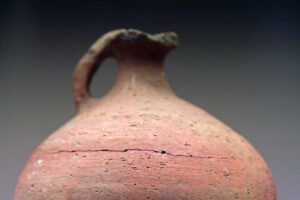This is now the second letter that I am writing to you, beloved. In both of them I am stirring up your sincere mind by way of reminder, that you should remember the predictions of the holy prophets and the commandment of the Lord and Savior through your apostles” (2 Peter 3:1-2 ESV).
In addition to expressing the Apostle Peter’s deep affection for his readers, our text from 2 Peter 3:1 also makes reference to a “sincere mind” or “wholesome thinking” (NIV). However, the passage quoted above defines sincerity in a way that transcends the ordinary definitions of honesty, earnestness, and candor.
Although sincerity is often associated with a lack of pretense, this word is rooted in the concept of “judging by sunlight” in the original language of 2 Peter 3:1. While it may be difficult to see the correlation between these ideas, some background information can help establish a connection between these seemingly unrelated themes. To do so, let’s return to the scene of a first century marketplace to witness a prospective transaction between a buyer and a seller.
 In ancient times, an unethical merchant might seek to market a defective earthenware vessel to an unsuspecting customer. To accomplish this, a dishonest vendor would camouflage the damaged portion of a container by carefully applying a thin layer of wax. Once painted, the final product looked as if it was in perfect condition- until the purchaser attempted to fill it with water and subsequently discovered the truth.
In ancient times, an unethical merchant might seek to market a defective earthenware vessel to an unsuspecting customer. To accomplish this, a dishonest vendor would camouflage the damaged portion of a container by carefully applying a thin layer of wax. Once painted, the final product looked as if it was in perfect condition- until the purchaser attempted to fill it with water and subsequently discovered the truth.
To avoid that problem, a knowledgeable consumer would inspect a potential purchase by holding it up to the sun and looking within. The resulting sunlight would instantly illuminate any damage that had been repaired in such a manner. Armed with that information, a prospective buyer could negotiate a better price or discard the damaged item in favor of an unbroken piece.
So how does this apply to contemporary readers of this passage? Well, this portion of Scripture reminds us of the need to maintain sincerity and authenticity in our thinking. Unlike those who avoid being honest with themselves, the Biblical Scriptures encourage us to cultivate a God-honoring thought life that is truthful and ethical. Then, if we are “brought into the light” and examined by others, it will be evident that we are sincere individuals who genuinely represent God, rather than hypocritical “cracked pots.”
This brief aside also encourages us to avoid the path chosen by the false teachers that Peter identified for us in the previous chapter. A person who displays a “pure mind” (NET) thus serves as an appropriate contrast to others who prefer “…carousing in their own deceptions” (2 Peter 2:13).
Image Credit: “A very old crack” by Unhindered by Talent is licensed under CC BY-SA 2.0.

